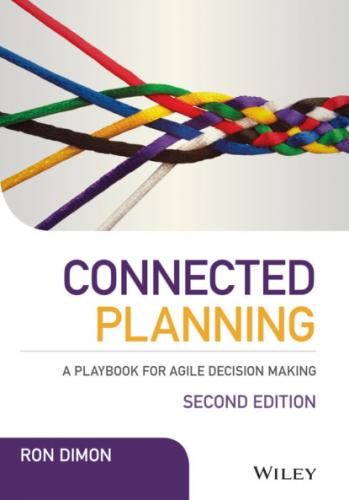16 CHAPTER 9: Strategy: Everyone Aligned to the Right Outcomes The Language of Strategy Functional Value Maps Optics: Line of Sight Metrics Equal Focus Profitability Strategic Flexibility Closing the Gap Summary Notes
17 CHAPTER 10: Digital Planning Cloud Computing Blockchain Robotic Process Automation Cognitive Technologies Predictive Analytics Cybersecurity Notes
18 CHAPTER 11: Bringing It All Together Alignment A Common Business Language Maturity Is in the Arrows Return on Investment and Total Cost of Ownership Standard Architecture Your Connected Planning Roadmap Organizational Readiness: The Connected Planning Center of Excellence Paralyzed by Feuds? Connected Planning and Incentive Plans How Do You Get Started? Summary Notes
19 APPENDIX: AN EPM MATURITY MODEL
20 BIBLIOGRAPHY
22 INDEX
List of Tables
1 Chapter 1Table 1.1 A Summary of the Buckets of Pain
2 Chapter 3Table 3.1 A Business Function and Layer Matrix
3 Chapter 4Table 4.1 Examples of Models That Support Strategic Objectives
4 Chapter 6Table 6.1 Data Consumption Is Undergoing a Major ShiftTable 6.2 Example Roles Throughout the OrganizationTable 6.3 Matching the Tool to the Type of User
5 Chapter 7Table 7.1 Big Data Use Cases
6 Chapter 8Table 8.1 Connected Planning and Order-to-Cash Performance Management Initiat...Table 8.2 Potential Connected Planning Initiatives for Lenovo GroupTable 8.3 Connected Planning Components by Business Impact Area and DecisionTable 8.4 Connected Planning Initiatives by Industry by Management Process
7 Chapter 9Table 9.1 Actions That Can Impact Profitability
8 Chapter 11Table 11.1 How Connected Planning Supports Nature's Rules for Survival
9 AppendixTable A.1 Maturity Model Assessment ComponentsTable A.2 Sample Maturity Scoring
List of Illustrations
1 Chapter 1Figure 1.1 Barriers in the Strategy-Execution Gap
2 Chapter 3Figure 3.1 Planning Operating System: High-LevelFigure 3.2 Start of the CycleFigure 3.3 Understanding Your ResultsFigure 3.4 Debate Possible ScenariosFigure 3.5 Accountable CommitmentsFigure 3.6 Bringing It All Together
3 Chapter 4Figure 4.1 Close-Up of the Debate Process and Its Inputs and OutputsFigure 4.2 Benchmark Analysis for Citizens Bank, Q4 2010Figure 4.3 KPI Decomposition into Value DriversFigure 4.4 Sales Commission ModelFigure 4.5 High-Level Architecture for Modeling
4 Chapter 5Figure 5.1 Close-Up of the Commit Process and Its Inputs and OutputsFigure 5.2 Top-Down, Bottom-Up, and Side-to-Side Iterative PlanningFigure 5.3 A Simple PlanFigure 5.5 Integrated Plan TypesFigure 5.6 High-Level Planning Architecture
5 Chapter 6Figure 6.1 Close-Up of Visualize Process and Its Inputs and OutputsFigure 6.2 Volume and General Domain of Reports by Organization LevelFigure 6.3 Generic Reporting ArchitectureFigure 6.4 End-to-End Financial Close Process at a High LevelFigure 6.5 Sustainability Reporting in Oracle Hyperion Financial Management...Figure 6.6 Shanks Group Plc 2012 Annual Report Page 1Figure 6.7 Typical Reporting High-Level Architecture
6 Chapter 7Figure 7.1 Close-Up of the Understand Process, and Its Inputs and Outputs...Figure 7.2 Metric Decomposition within the Business MatrixFigure 7.3 Standard Time Series Financial ReportFigure 7.4 Example of Multivariate and Comparison PatternsFigure 7.5 Distribution of Each Record That Falls within Each $100 Profit Ra...Figure 7.6 From–To Patterns: Deliveries Out of Berlin (Left), Gulf Coast Hur...Figure 7.7 OutliersFigure 7.8 Multiple Trend Lines: Discount by Quarter/Year by SupplierFigure 7.9 Dollar Purchase Amounts versus Customer Age Shows Three Distinct ...Figure 7.10 Geospatial ExampleFigure 7.11 Waterfall ChartFigure 7.12 Structuring Unstructured DataFigure 7.13 Sparklines Embedded within TextFigure 7.14 Analytics Architecture
7 Chapter
